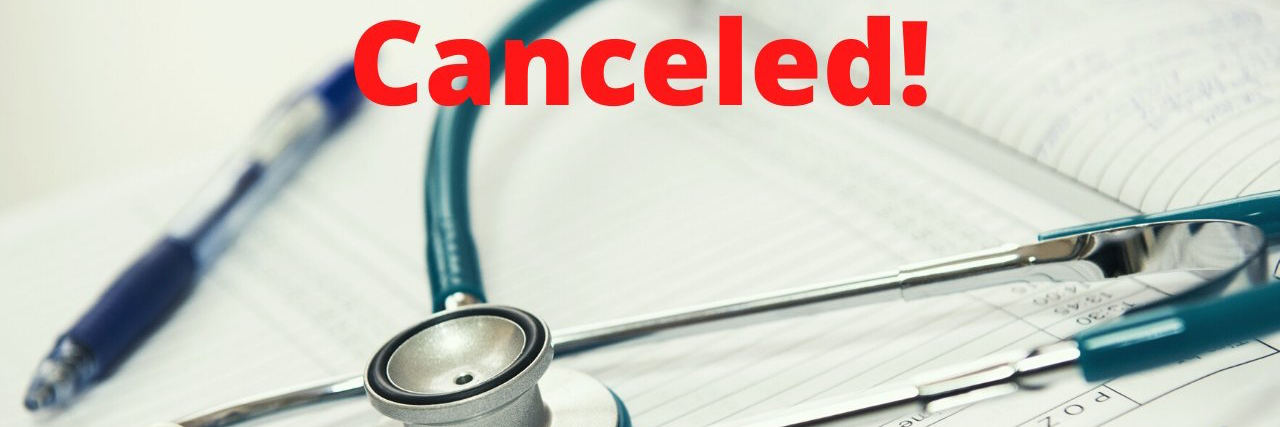Uncharted Territory: Doctor's Appointments in the Time of COVID-19
Editor's Note
The following recommendations are based personal experience. For questions or concerns regarding health, please consult a doctor or medical professional.
Getting rare disease care has never been easy, but with the coronavirus outbreak — a new viral strain in the coronavirus family — it has become even harder. Clinics are closing, surgeries are being rescheduled and long-awaited appointments are being postponed.
Many of you may have had things canceled or postponed. As disappointing as this is, it is important to realize this is being done to help our medical system handle the coronavirus outbreak from a logistic point, while also trying to optimize your safety as well.
Your doctor, their clinic and/or hospital will be following recommendations by the CDC (Center for Disease Control) and ACS (American College of Surgeons) along with careful consideration of your specific medical case to decide what can and should be rescheduled.
Our doctors were struggling to survive in a broken medical system before, but now they are entering the totally unchartered territory of providing medical care during a pandemic. The medical system is being stressed beyond anything that it has ever encountered and so are our doctors and other healthcare workers.
Respect and understanding of what our doctors, NPs, PAs and clinic staff, nurses and entire hospital staff including technicians are dealing with will go a long way in helping us to respond with compassion and patience.
As a patient advocate, I wanted to provide some ways you can help:
1. Evaluate appointments, procedures and surgery on urgency and necessity.
Questions to think about and discuss with your doctor to help decide if things need to be done now or if they can be postponed.
- Is this needed now? Or is it safe to wait?
- What additional risk is there if we wait? Does the length of the wait matter?
- Does the facility have the capacity for it?
- What is the risk of being in the facility?
- Are there patients with COVID-19 being treated in the facility?
- What is the risk to you if you were to contract COVID-19?
- What impact would that have on the facility capacity? Would you likely be hospitalized and require increased care?
2. Change in-person appointments to telehealth or remote appointments.
- Many offices are closed or running with remote or limited staff.
- Doctors are being encouraged to offer telehealth or remote appointments to limit exposure and need for personal protective equipment (PPE).
- If your doctor doesn’t offer this option, ask if you can do a phone appointment to cover any urgent or critical issues.
- Ask if you can send a summary document for the appointment prior to meeting with your doctor. This will allow you to share the most important information clearly and concisely, plus help set the agenda for the appointment.
- Recording the appointment can be helpful but ask permission, explaining it is hard to catch everything over the phone. Be aware that some states require both parties to consent to be recorded.
- After the appointment, write up a summary of what you understand was discussed and decided, ask your doctor to agree or give feedback on the summary. You can send it via MyChart which gets it entered into your medical record as well.
- Remember to ask if there are special considerations for you in terms of COVID-19 and if your doctor is willing to share their phone number in the event that their expertise is needed for your care.
3. Take a strategic approach to your health care needs
- With many offices closed or short-staffed, it is important to be respectful and purposeful with communication and requests.
- Remember that this situation is new to all of us, including our doctors and their staff so we will be learning as we go.
- Medication refills and requests should be made early and may take extra time to be filled. Some insurance companies are approving 90-day refills due to the pandemic which also lessens the burden on the doctor’s office.
- Think ahead to what you might need in the next couple of weeks, as things are likely to get busier.
- If you are high risk or may have complications from your rare disease(s), politely requesting your doctor’s or specialist’s phone number in case of emergency is reasonable. Without the formal structure of the clinics and offices, it may be very challenging to get in touch with them in a timely manner later on.
- Communication through MyChart will give your doctor the ability to respond in their time frame and from places other than the office.
- If it is urgent and you need to speak to your doctor immediately, call their office. You may need to follow directions on how to contact them in an alternate way if the clinic is closed.
I know this is a scary time for all of us but if we work together, with patience and compassion, we can get through it together.
Resources:
The CDC has recommendations for inpatient and outpatient facilities that can be found here: Interim Guidance for Healthcare Facilities: Preparing for Community Transmission of COVID-19 in the United States
The American College of Surgeons (ACS) has recommendations here: h-19: Guidance for Triage of Non-Emergent Surgical Procedures and COVID-19: Recommendations for Management of Elective Surgical Procedures.
Concerned about coronavirus? Stay safe using the tips from these articles:
- Which Face Masks Prevent Against Coronavirus?
- How to Make Your Own Hand Sanitizer
- 8 Soaps You Can Use to Help Prevent the Spread of Illness
- Coronavirus and Chronic Illness: What You Need to Know
- 10 Face Masks People With Chronic Illness Recommend
This post originally appeared on Healing Hugs Haven.
Photo provided by contributor

